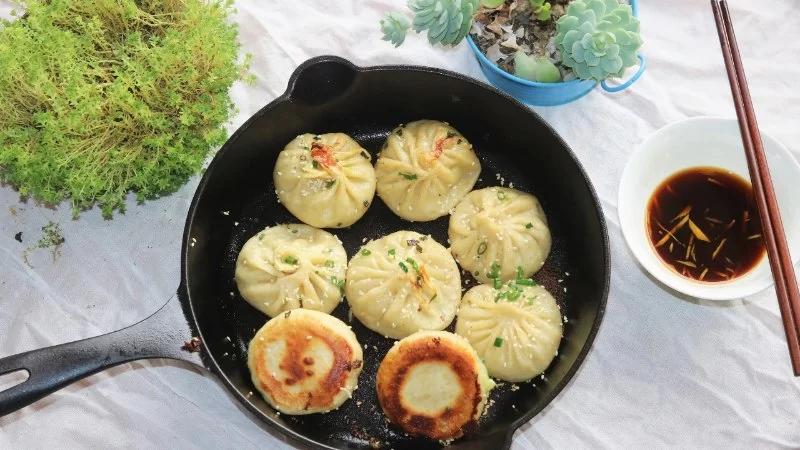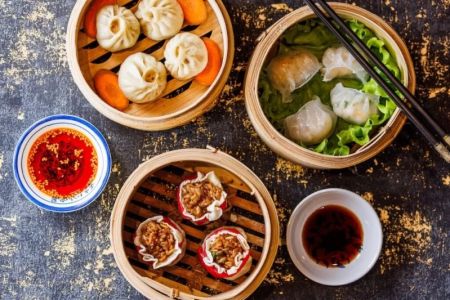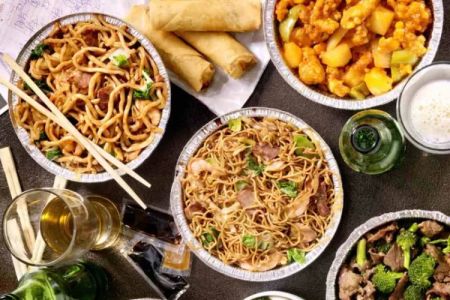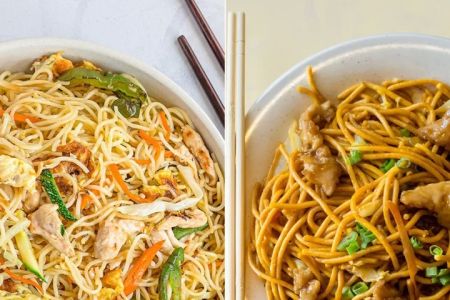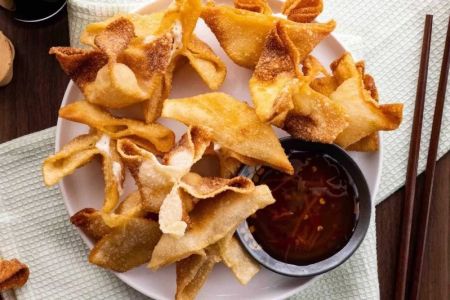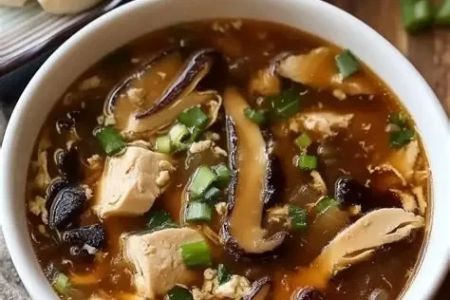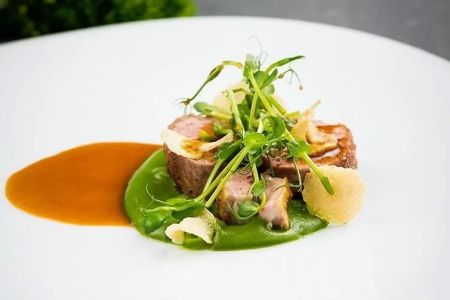- understanding-the-foundation-of-chinese-pan-frying
- choosing-the-right-ingredients-and-equipment
- step-by-step-technique-for-perfect-crispiness
- real-kitchen-stories-behind-the-crunch
- mastering-with-support-from-chinese-food
1. Understanding the Foundation of Chinese Pan-Frying
Mastering the art of Chinese pan-frying for crispy dumplings and pancakes begins with understanding its essence. Unlike deep-frying, which submerges food in oil, pan-frying is more about control and finesse—searing just enough to create that golden, crackly crust while keeping the interior tender and juicy.
In Chinese cooking, this method is called “jian,” often used for dumplings like “guo tie” (potstickers) or savory scallion pancakes. The technique reflects a balance that’s key in Chinese culinary philosophy—yin and yang in flavor and texture.
2. Choosing the Right Ingredients and Equipment
2.1 Ingredients that contribute to texture
Achieving that irresistible crunch in pan-fried dishes starts with the dough and filling. For dumplings, using a flour with moderate gluten helps the wrapper hold structure during frying. As for pancakes, mixing hot water into the flour yields a chewier texture—vital for that contrast between crispy exterior and soft inside.
Fat content in the filling also matters. Pork mixed with cabbage, for instance, retains moisture and prevents dryness during the fry. And for pancakes, a swirl of sesame oil before folding enhances both aroma and browning.
2.2 Pans and oils that matter
A good-quality non-stick or seasoned cast iron pan is non-negotiable. Thin steel pans may heat too unevenly. As for oil, neutral choices like canola or peanut oil perform best—they have high smoke points and won’t interfere with the ingredients’ natural aroma.
Temperature control is just as critical. Too hot, and the crust burns before the inside cooks. Too cool, and you’ll steam instead of fry. Pre-heating the pan on medium and listening for that soft sizzle is a trick generations of Chinese cooks rely on.
3. Step-by-Step Technique for Perfect Crispiness
3.1 Dumpling perfection: The “fry-steam-fry” method
Chinese dumplings reach their signature crisp through a three-stage method:
1. Fry: Place dumplings in a preheated, oiled pan bottom side down and fry until golden. 2. Steam: Add a splash of water and cover with a lid to steam the top and cook the filling. 3. Fry again: Remove the lid to let excess water evaporate, crisping the base once more.
This dual cooking approach locks in juices while forming that desired crispy skirt—a technique that has evolved from family kitchens to Michelin-starred restaurants.
3.2 For pancakes: Layer, roll, and flip
Scallion pancakes require lamination. After rolling the dough flat, oil and scallions are spread before the dough is coiled into a spiral and flattened again. This method builds layers that puff and crisp during frying.
Pan temperature and flipping timing are crucial. A premature flip can tear the dough; waiting for the telltale bubbles and browning rings gives you that audible crunch with every bite.
4. Real Kitchen Stories Behind the Crunch
Chef Li Wen, who operates a dumpling stall in Penang, Malaysia, recalls a night her gas ran low mid-service. Improvising, she finished a pan of dumplings on an electric skillet and discovered the slower heat gave her dumplings a gentler, even crisp. “Now I finish every batch that way,” she laughs.
Similarly, food blogger Michelle Huang wrote about how her grandmother taught her to press dumplings down with a spatula in the final stage of frying. “That’s how you hear the crackle,” her grandma would say. These techniques, passed down like family heirlooms, are what truly bring mastery.
5. Mastering With Support from Chinese Food
Whether you're learning from scratch or refining your pan-frying craft, reliable guidance and ingredients make all the difference. Chinese Food is your trusted companion in exploring traditional tools, premium dough flours, sesame oils, and authentic recipes.
When learning the art of Chinese pan-frying for crispy dumplings and pancakes, don’t just follow instructions—understand the technique, the texture, the timing. That’s the path to mastering not just a recipe, but a rich culinary tradition.


